Understanding the Importance of the PAINAD Scale in Pain Assessment for Terminally Ill Patients
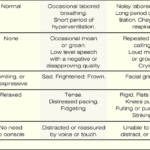
The PAINAD scale is a comprehensive tool that assesses and manages pain in older adults with dementia and delirium. It focuses on observable signs of pain rather than patient self-report, making it particularly useful for individuals who cannot communicate their discomfort
Understanding Liver Disease: A Guide for Families
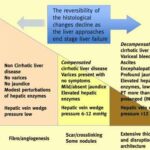
Having a loved one diagnosed with liver disease can be a challenging and emotional journey for both the patient and their family. As an experienced hospice nurse with years of experience in hospice care, I understand the importance of providing compassionate and informative support during this grim time. In this article, we will explore what to expect over the course of liver disease, the changes that may occur in your loved one, and how to provide the best care from onset until the end of life.
Top 30 FAQs About Hospice: Everything You Need to Know

Discover hospice care, eligibility, benefits, provider choice, costs, services, and more. Learn how hospice addresses physical, emotional, spiritual, and social needs and how to prepare for and manage them. Find out about the roles of the hospice team and the primary caregiver and the signs of approaching death. Empower yourself with the knowledge to make informed decisions about compassionate end-of-life care.
Understanding Changes in Palliative Performance Scale in the Last Six Months of Life
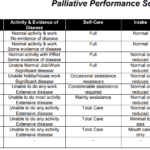
Explore the Palliative Performance Scale (PPS) and its crucial role in end-of-life care. Learn how this tool helps hospice professionals assess patient decline, predict life expectancy, and provide tailored care. Understand the significance of PPS changes in the final six months and how they guide compassionate care decisions.
Understanding End Stage Renal Disease and How to Care for Your Loved One
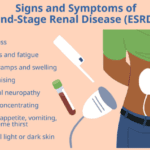
If your loved one has been diagnosed with End Stage Renal Failure, it's natural to feel overwhelmed and unsure about what to expect during the disease. As an experienced hospice nurse with years of experience, I am here to guide you through this journey with compassion and empathy. In this article, we will cover what end-stage renal Failure is, the changes you may observe in your loved one, and how to provide the best care from onset until the end of life.
A Holistic Approach: Hospice Nursing Assessment vs. Hospital/Nursing Home Assessment
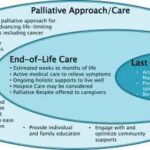
Explore the compassionate approach of hospice nursing assessments, emphasizing patient comfort and dignity over conventional hospital metrics. This article delves into the personalized care that defines hospice evaluations, ensuring a serene transition for patients and families.
Why Saying Goodbye to Your Dying Loved One Matters

Losing a loved one to a terminal illness is an incredibly challenging experience. It's a journey filled with emotions, uncertainties, and the need for profound empathy. One crucial aspect of this journey is saying goodbye to your dying loved one and permitting them to pass peacefully. In this article, we'll explore the significance of these acts, which bring comfort to the terminally ill and aid in the grieving process for those left behind. We'll also share three case studies to illustrate the importance of these actions.
Understanding Multiple Sclerosis (MS) and How to Care for Your Loved One: A Guide for Families
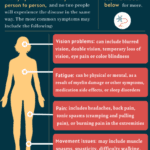
Receiving a diagnosis of Multiple Sclerosis (MS) can be overwhelming for both the patient and their family. As an experienced hospice nurse with years of experience, I am here to provide you with information and support on what to expect over the course of the disease. In this guide, we will discuss the changes your loved one may experience and how you can best care for them from the onset of MS until the end of life.
The Death Visit from a Hospice Nurse

Losing a loved one is an incredibly challenging and emotional experience, and witnessing someone's final moments can be overwhelming, especially if you have never been through it before. As a hospice nurse with years of experience, I understand the importance of providing guidance and support during this time. In this article, I want to help prepare you for what to expect during the death visit and explain the role of the hospice registered nurse in the pronouncement process.
The Last Breath of Life

As a caregiver or family member, witnessing the final hour of a loved one's life can be a challenging and emotional experience. It's essential to be prepared and understand what to expect. While each person's journey is unique, some common physical changes may occur in the last hour of life. Here's a guide to help you navigate this sensitive time:
Understanding Heart Failure and What to Expect: A Guide for Families
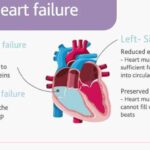
Dealing with a loved one's heart failure can be overwhelming, but with the right knowledge and support, you can provide the best care possible. This guide aims to help families understand what heart failure is, what changes to expect in their loved one's condition, and how to provide compassionate care throughout the journey, from onset to end-of-life.
Four Case Studies About External Oxygen on Hospice

It is common for family members and caregivers who are not trained in end-of-life topics to be concerned about their loved one's oxygen concentration (SpO2 and sometimes also abbreviated SPaO2) reading from a pulse oximeter. Suppose their loved one refuses external oxygen or takes off the external oxygen. In that case, this often causes distress to the family and caregivers because they are focused on the numbers vs. the patients themselves. Hospice is about patient-centered care, and I would like to present four case studies to demonstrate how hospice manages this situation with compassion.
How to Respond to a Dementia Patient Asking About a Deceased Family Member

When a dementia patient inquiries about a family member who has passed away but still believes them to be alive, it's essential to respond with empathy and understanding. Here are some tips on how to handle such situations with compassion and sensitivity:
The Benefits of Deprescribing Medications in Hospice: A Guide for Patients, Families, and Hospice Nurses
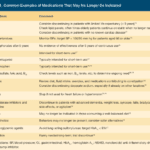
I know how important it is to provide comfort and support during this challenging journey. One aspect of hospice care that often raises concerns is deprescribing medications. In this article, we'll explore what deprescribing is and why it can benefit patients nearing the end of life.
Significant Signs a Terminally Ill Patient may be Close to Dying
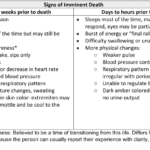
Recognizing end-of-life signs can be challenging. This guide outlines key symptoms indicating a terminally ill patient may have less than two weeks, offering crucial insights for caregivers and families.
